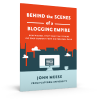Reclaiming Your Calm When Stressed
The storm raged on the Sea of Galilee, tossing the boat violently as the disciples battled the wind and waves. Panic gripped them. The sea, once a source of livelihood, now threatened their very lives. In their desperation, they turned to Jesus, who lay asleep despite the chaos.
“Master, don’t you care that we are perishing?” they cried.
Jesus arose, stretched out his hand, and spoke: “Peace, be still.”
Instantly, the waters calmed. The winds ceased. And in that moment, a truth greater than the storm was revealed—stillness has the power to transform not just the external world, but our very perception of reality itself.
The Wisdom of Jesus on Stillness
What stands out in this moment is not just the miracle of Jesus calming the storm, but the fact that he was asleep while the chaos unfolded around him. His rest was not one of exhaustion but of deep, unshakable peace—an inner stillness that was undisturbed by external circumstances.
Jesus did not react to the storm in fear as the disciples did. Instead, from a state of perfect inner rest, he arose and spoke words that transformed reality: “Peace, be still.” The peace within him altered the storm outside of him. This was not just a lesson for his disciples—it was an invitation for all of us.
His words, “Peace, be still,” echoed far beyond the turbulent sea, reaching into the depths of human consciousness, revealing that true calm arises not from the absence of chaos but from an alignment with the deeper reality of divine presence.
When Jesus spoke of the kingdom of God being “within you,” he pointed to a truth that transcends the visible, a sacred awareness that remains untouched by the turbulence of the external world.
In his native Aramaic, the word “shaluta,” often translated as “prayer,” carries a profound meaning—one that extends beyond spoken words into an embodied alignment with the divine presence. Shaluta is not about merely petitioning God but about entering a state of resonance with the Source, where the mind surrenders its frantic grasping, and the heart awakens to the stillness that has always been there.
Throughout his life, Jesus sought solitude, retreating to the wilderness, to mountains, to quiet places where the noise of the world faded into silence. He understood that stillness was not an escape but a portal to divine wisdom, a sacred space where clarity and strength emerge.
In this silence, the illusions of fear and separation dissolve, replaced by an unshakable knowing—an awareness that beneath the surface of every storm, there is an abiding calm, a presence that whispers, “Be still, and know.”

Science Confirms the Power of Stillness
Modern science has caught up with what spiritual wisdom has long known—stillness has tangible effects on the brain and body.
Studies in neuroscience show that meditation can significantly reduce the reactivity of the amygdala, the brain’s fear center, while strengthening the prefrontal cortex, which governs emotional regulation and decision-making. This neurological shift leads to a calmer, more resilient mind.
Research from the HeartMath Institute further reveals that intentional stillness—especially through heart-focused meditation—creates heart-brain coherence. This state of harmony between the heart’s electromagnetic field and brain activity fosters increased feelings of peace, gratitude, and connection with others.
Moreover, the default mode network (DMN) of the brain, responsible for wandering thoughts and self-referential thinking, quiets during meditation. This provides relief from anxiety and overthinking, allowing a person to step beyond the ego-driven mind and experience a deeper awareness.
The Quiet Revolution

In a world addicted to noise, choosing stillness is an act of quiet defiance.
It is a rejection of the belief that worth is measured by productivity, and an embrace of the truth that the deepest treasures are found within.
Just as Jesus calmed the storm with a simple command, you have the power to cultivate inner stillness amid the chaos of life.
Beneath the noise of the world and the chatter of your mind, there is a still, small voice calling you home—a voice that speaks of peace, love, and infinite possibility.
The question is not whether you can find stillness, but whether you are willing to embrace it. So pause, breathe, and listen. The calm you seek has been within you all along.

Written by David Youngren
David Youngren is a spiritual philosopher, storyteller, and philanthropist. He is the author of Life Ascending: Unlocking Mental Wellbeing through Timeless Wisdom and New Science. Through his writings, meditations, and teachings, David inspires people globally to live with greater peace, creativity, and fulfillment.
Disclosure: Some links on this site are affiliate links, meaning we earn a small commission at no extra cost to you. Your purchase through these links helps support our mission. Thank you for your support!
More From The Blog

Have We Missed the Way of Jesus? Living Beyond Religion in the Rhythm of Love
Life often feels like a maze — unpredictable, winding, and filled with choices that shape who we become. I’ve faced those moments when the path ahead seemed uncertain, when the weight of fear and doubt made it difficult to take the next step. But over the years, I’ve discovered that I’m not walking alone. There’s a loving Presence that meets me in the confusion and invites me to see life differently.

When Stress Becomes Overwhelming
Sometimes, life feels like it’s pressing in from every side. Responsibilities pile up. Deadlines loom. The news unsettles. People need things you’re not sure you have the energy to give. And underneath it all, there’s a silent panic: What if I can’t hold it all together?

What To Do When You Really Mess Up
And maybe, for a moment, you believe it. You hide. You replay the moment a hundred different ways. You wish you could rewind time. But here’s the deeper truth: messing up doesn’t disqualify you from love, worth, or peace.



